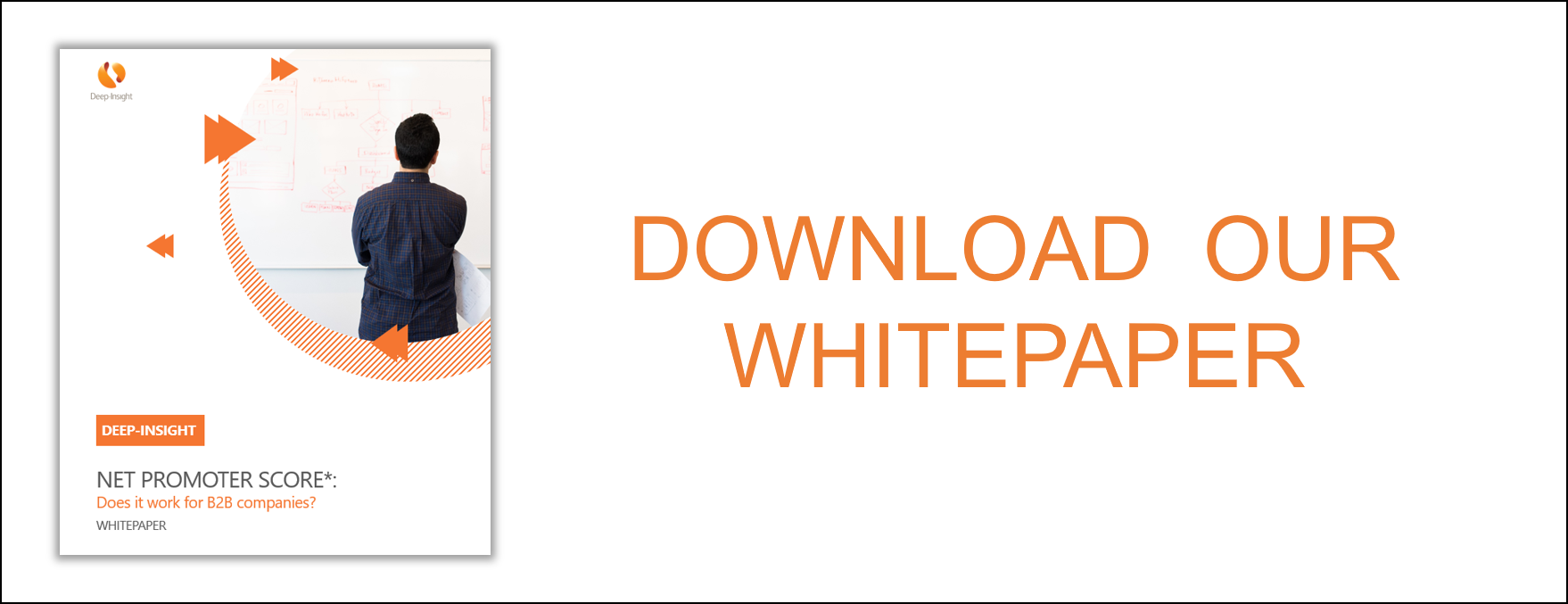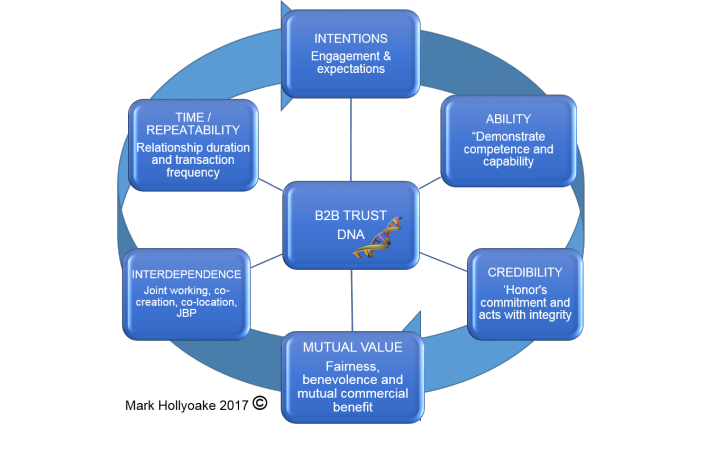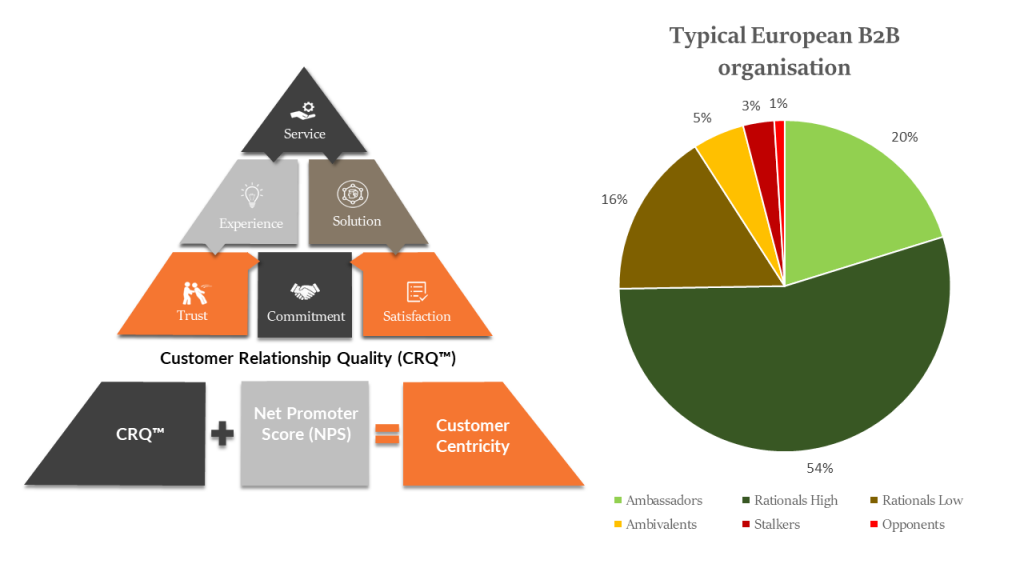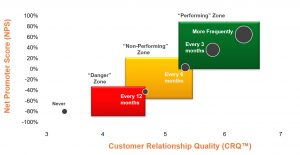DOES YOUR NET PROMOTER SCORE (NPS) REALLY MATTER?
To answer this it is important to really understand what we asking our customers when we use NPS.
Recently, after a perfectly OK meal in a restaurant, someone asked me this question: Would I recommend the restaurant to friends or family? Without hesitation, I said ‘NO’. Queue shock and gasps. The meal was ok, the service was fine, the atmosphere was nice. How could I be so mean? I didn’t think I was being mean. It was all fine but a recommendation from me is a reflection on me, it is saying something about me and my standards – for food of all things. I certainly wouldn’t recommend a food experience that was a bit, well, “meh”.
In the professional B2B world the stakes are a lot higher. Social media – yes that includes LinkedIn – has created a whole business out of self-promotion. Recommending or promoting someone else’s business is an easy way to do this with little effort. It is the ultimate win/win. A recommendation from a customer is the most effective sales tool you can have and in turn, the recommender gets to add value to their brand. But this delicate equilibrium can only exist if your customers trust that recommending your business, and your company’s hard work, will reflect well on them.
So, how do you find out if your customers trust you enough to recommend you? Enter Net Promoter Score or NPS. A clever, albeit obvious, idea –ask them!
And we have been asking, NPS is everywhere and we are obsessed. It can influence the whole mood of an organisation. But can you confidently say that that all of your promoters really are recommending your company? Not until you answer at least the following questions:
Are your Senior Leaders driving a culture of valuing the feedback, not the score?
We are often asked: ‘Do you measure NPS? Head Office needs us to provide an NPS number’.
One does not need a doctorate in psychology to know that if there is motivation, implied gain or actual gain, to reach a target number, then that will drive certain behaviors to reach that number. A commitment to consistently gathering the data with integrity needs to come from the leadership team, visibly and regularly. Helping our clients get this engagement from their leadership team is the first thing we do in any CX project, see how we do it here.
Is your organisation measuring it with integrity, or are you chasing a number?
Teams are often trained to find clever ways of making sure that NPS moves in the right direction. A new and improved NPS score is then announced and celebrated. NPS is very useful but only if the culture and approach for gathering it ensure that it is done with the intention of really understand the customer. It’s crucial that organisations do not distract by chasing and competing for a number. This is about the customer after all.
Is Transactional NPS concealing the truth?
Yes, in the last 5 minutes I had a great experience with your customer service team member. But will I recommend your business just based on this? No, of course not. But I will answer 10 because I am a nice person and I don’t want the individual who just really helped me to suffer. This use of NPS is manipulative and gives you absolutely no insight into your customers’ intentions for recommending you.
So, does your NPS score matter?
Does it reflect if your customers are actually recommending you in the marketplace, or has your organisation become better at understanding how and when to gather the responses in order to ensure a score is achieved?
Only when you can answer that should anyone care what the score is.
* Net Promoter® and NPS® are registered trademarks and Net Promoter SystemSM and Net Promoter ScoreSM are trademarks of Bain & Company, Satmetrix Systems and Fred Reichheld





